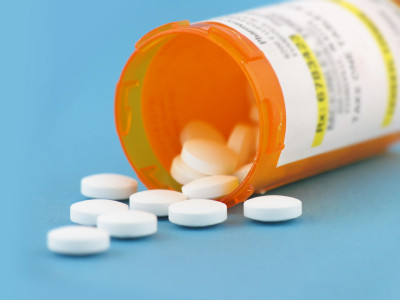
Tips to leverage neuroplasticity to maintain cognitive fitness as you age

Can white noise really help you sleep better?

Celiac disease: Exploring four myths

What is prostatitis and how is it treated?

What is Cushing syndrome?

Exercises to relieve joint pain

Think your child has ADHD? What your pediatrician can do

Foam roller: Could you benefit from this massage tool?

Stepping up activity if winter slowed you down

Common causes of cloudy urine
Harvard Health Blog
Read posts from experts at Harvard Health Publishing covering a variety of health topics and perspectives on medical news.
Articles
The effects of sleep deprivation on surgeons — and their patients
Do the long hours in the hospital, often with little sleep, make doctors in training more prone to making mistakes? Over the past decade, concerns regarding trainee doctors’ sleep loss and the potential for medical errors have brought about limits on the number of consecutive hours a resident can work in the hospital. Do the same concerns apply to fully licensed surgeons? A recent study in The New England Journal of Medicine suggests that the answer is no. Comparing the data on patients whose surgeons were on call the night before with that of patients whose surgeons were not working the night before showed virtually no difference in how well the patients did after surgery. It is not clear, however, whether these doctors anticipated the effects of being on call and compensated for them, or whether these results would be the same for less-experienced surgeons-in-training.
Heart-healthy diet boosts survival in men with low-risk prostate cancer
Can a healthy diet help men with low-risk prostate cancer live longer? The authors of a new study say “yes.” A long-running Physicians’ Health Study, suggests that a diet that is good for the heart, brain, and other parts of the body may also help keep low-risk prostate cancer at bay. On the flip side, a diet rich in red meat and high-fat dairy foods appears to be hazardous for men with this kind of cancer. It isn’t clear why a diet that protects against heart disease would also protect against death from prostate cancer. Dr. Chavarro speculates that it’s because high-fat foods are easily broken down and absorbed by the digestive system, and so they might provide quick energy sources for growing tumors. Nevertheless, the results suggest that by eating healthily, men with prostate cancer can take a proactive step towards living a long life.
Direct-to-consumer drug advertising — beyond what you see on TV
Consumers are barraged by ads for prescription drugs on television and in print. Twenty years ago, people who knew the names of the drugs available for their health conditions, and knew to ask for new drugs by name, were few and far between. But today, direct-to-consumer ads encourage patients to ask their doctors for new (and often pricey) medications. While it isn’t bad to inform people about new and potentially better medications, this tidal wave of advertising has a downside. Potential side effects and risks are not always completely and plainly explained and the cost of these drugs is often not made clear. While it is fine to ask your doctor about a drug you’ve seen on TV or elsewhere, be aware that a new medicine is not necessarily a better medicine — or the right one for you.
Can digital fitness trackers get you moving?
Study after study has shown that Americans don’t get enough activity. In fact, many of us don’t even get our recommended 10,000 steps a day. Could pedometers or digital fitness trackers help? Pedometers are simple gadgets that measure how many steps you take. Digital fitness trackers also measure the pace, distance, duration, and intensity of your activity, and often have accompanying web applications that can evaluate and even graph this information. In a small study published in the American Journal of Preventive Medicine, researchers gave either a standard pedometer or a Fitbit brand digital fitness tracker to 51 overweight postmenopausal women who had been getting about 33 minutes per week of moderate to vigorous physical activity. The pedometer group did not have any significant change to their activity levels. But the fitness tracker group increased their physical activity by an additional 38 minutes per week.
Looking for Autism
Statistics show that one out of every 68 children in the United States meets the criteria for autism spectrum disorder (ASD). What these figures don’t show is that early intervention and treatment can make a huge difference in the lives of these children and their families. Routine well-child visits are important to monitor health and growth, but they also provide an opportunity to keep an eye on a child’s development. While most children do not have ASD, and some kids are just “late bloomers,” others may show signs of any number of developmental challenges or delays — all of which benefit from therapies at home or at school. Of course, all children benefit from mindful observation of their development and advice and support from their pediatricians, should concerns arise.
Quitting smoking doesn’t have to mean big weight gain
Weight gain might be one of the most dreaded “side effects” of quitting smoking. Constant reminders of the health dangers of being overweight lead some smokers to think that smoking is “safer” than the weight they might gain if they quit. But that’s just not the case. It’s true that people tend to gain 5-10 pounds in the first six months after they stop smoking. But a recent study suggested that for those who quit, weight gain slows down over the following 10 years after quitting. Over that same time period, people who continued to smoke also gained some weight, though not as much. Over all, kicking the habit doesn’t have to mean a larger waistline, especially if you plan ahead.
It’s NOT a “pink Viagra”
Women of all ages have questions and concerns about their sex lives. These issues often come up after having a baby, during perimenopause, and well into later life, too. Women’s sexuality is very complex. Brain chemistry, mood, hormones, and the nature of a woman’s relationship with her sexual partner are all important influences. This week, the FDA approved the drug flibanserin for treatment of low sex drive in premenopausal women. This drug is no “pink Viagra,” and its effect on women’s sexual function may be small, but it may be a step in the right direction simply because it draws attention to the value of a satisfying sex life for women and acknowledges it as a legitimate health concern.
Is treating “low T” really safe and effective?
If you’re a man, you’ve undoubtedly heard that lack of energy or sex drive, trouble concentrating, or feeling down or not quite yourself could be related to low testosterone, or “low T” — and that a little testosterone replacement could have you back on your game. But testosterone replacement is tricky business, and its safety and effectiveness remain controversial. Further, there can be many other causes for the symptoms of “low T.” A thorough evaluation to determine whether low testosterone is really the problem, along with a careful weighing of the potential risks and benefits of testosterone replacement, are essential before considering this drug.
Doctor-rating websites offer helpful but limited advice
Websites that rate doctors and their practices can offer valuable information, but it’s often incomplete. Narrative reviews, in which patients describe in their own words their experiences with clinicians, are usually the most helpful — but could be even more so if they were collected in a standardized format. What’s more, only 40% of doctor-rating sites list information on how well a provider performs in terms of offering timely appointments and following guidelines for preventive screening tests. If you’re looking for a new clinician, it may be most helpful to ask trusted friends and family members for recommendations.
Standing up for better heart health
Spending less time sitting and more time standing lowers blood sugar, cholesterol, and weight — all of which translates into a lower risk for heart disease. So says a study of Australian adults published in the July 30 issue of the European Heart Journal. Every two hours a day spent sitting was associated with an increase in weight and waist size, as well as in levels of blood sugar and cholesterol. As you might expect, time spent walking rather than sitting not only lowered cholesterol and blood sugar levels, but also reduced waist size and weight. Simply substituting two hours of standing for sitting also improved blood sugar and cholesterol levels. By making slight changes in your lifestyle to incorporate more standing, you could add important health benefits.
CPR during cardiac arrest: someone’s life is in your hands
Cardiac arrest is the ultimate 911 emergency. The heart stops sending blood to the body. Death occurs in minutes — unless a bystander takes matters into his or her hands and starts cardiopulmonary resuscitation (CPR). This keeps blood circulating until trained and better-equipped first responders arrive on the scene to jump-start the heart back into a normal rhythm. Two new studies in JAMA provide compelling proof that efforts to train people to do life-saving CPR pay off. Many organizations sponsor CPR and AED training programs. Two notable ones are the American Heart Association and the American Red Cross. Many local departments of public health also provide CPR training, including “friends and family” classes for people close to someone at risk of cardiac arrest. The investment of time and effort to learn CPR is small. The potential payoff — saving a life — is huge.
Bypass surgery an “uncommon” cause of memory loss, cognitive decline
Coronary artery bypass surgery (CABG) offers a new lease on life for thousands of people each year. But it has also been blamed for “brain fog,” a loss of memory and thinking skills that follows the procedure in some people. Such brain problems are often called “cognitive impairment.” But the operation itself may not be to blame, according to a review in today’s Annals of Internal Medicine. A team of mostly Veteran’s Affairs researchers concluded that intermediate and long-term cognitive impairment after cardiovascular procedures “may be uncommon.” That said, they recommend that anyone thinking about open-heart surgery or other large cardiovascular procedure should discuss with the surgeon the possibility of cognitive impairment.
Studies support broader use of cholesterol-lowering statins
The latest guidelines used to determine who should take a cholesterol-lowering statin to prevent heart disease appear to be more accurate and cost-efficient than the previous guidelines. That’s according to two studies led by Harvard researchers, both published in this week’s Journal of the American Medical Association. The new guidelines, published in 2013 by the American College of Cardiology and the American Heart Association, recommend a statin for men and women between the ages of 40 and 75 who have a 7.5% or higher risk of having a heart attack or stroke over the next 10 years. The JAMA studies show that the new guidelines provide a more accurate assessment of who would benefit from a statin and who wouldn’t, and are more cost-effective than the older guidelines. Statins aren’t a cure-all. Eating a healthier diet, exercising often, and not smoking will go a long way to preventing heart attack and stroke.
The Department of Defense wages war on prostate cancer
Active and retired servicemen with prostate cancer can get access to clinical trials, experimental therapies, and state-of-the-art care through the Department of Defense’s Center for Prostate Disease Research (CPDR).
Fourth of July grilling tip: Check for stray bristles after cleaning with a wire brush
Like millions of Americans, I plan to fire up the grill today for a Fourth of July cookout. But I’ll be adding an extra step to my routine: checking the grate for bristles that may have fallen off my cleaning brush. An article in this week’s Morbidity and Mortality Weekly Report describes six people injured by consuming grill-cleaning bristles hidden in grilled meat. Three had abdominal pain from wire bristles poking through the small intestine or colon. Three others had bristles stuck in the neck. All of the wire bristles were safely removed with open surgery or laparoscopy (“keyhole” surgery). The same team had published a report of six other cases earlier this year in the American Journal of Roentgenology. Twelve cases from one medical center over a three-year period does not an epidemic make. But it’s enough to suggest that ingesting wire bristles happens wherever home grilling is going on. Keep your grill bristle free by using a brush that’s in good shape. After you use a brush to clean your grill rack, use a towel or wadded up bunch of paper towels to wipe it down.
Dissolvable tablets don’t work for people with severe allergies to grass pollen
People with allergies to grass pollen may have cheered last year when the FDA approved a no-needles treatment —a daily tablet you dissolve under your tongue. These tables deliver low doses of grass pollen to the bloodstream. This is done to “teach” the immune system not to wage war on grass pollen. It turns out that these tablets don’t work that well. An analysis of 13 controlled clinical trials indicates that dissolvable tablets are only slightly more effective than placebos in curtailing classic symptoms of grass pollen allergy—runny nose, itchy eyes, and tickly throat. To make matters worse, more than 60% of people who used the tablets experienced irritating side effects.
Use sunglasses for vision protection starting at an early age
When kids pack for summer camp, sunglasses may not always top the supply list. But I made them a priority for my 12-year-old son Carson, who just started rowing camp in Florida, because eyes are vulnerable to damaging ultraviolet rays, which are especially intense near reflective surfaces. Ultraviolet rays can damage the eyes several way, ultimately leading to cataract, glaucoma, macular degeneration, and other thieves of vision. You don’t have to spend a bundle to get a good pair of sunglasses. Just make sure to pick ones that block close to 100% of ultraviolet A and ultraviolet B (UVA and UVB) rays.

Tips to leverage neuroplasticity to maintain cognitive fitness as you age

Can white noise really help you sleep better?

Celiac disease: Exploring four myths

What is prostatitis and how is it treated?

What is Cushing syndrome?

Exercises to relieve joint pain

Think your child has ADHD? What your pediatrician can do

Foam roller: Could you benefit from this massage tool?

Stepping up activity if winter slowed you down

Common causes of cloudy urine
Free Healthbeat Signup
Get the latest in health news delivered to your inbox!
Sign Up























